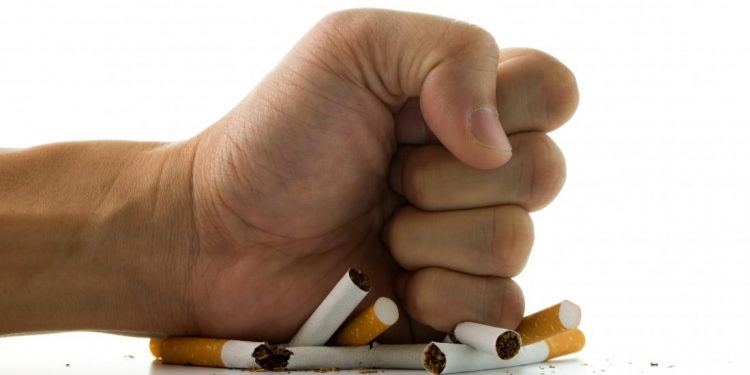Quitting smoking can cause uncomfortable withdrawal symptoms such as tension, depression, anger, insomnia, headache, fatigue, increased appetite, and difficulty concentrating.
Here are 6 tips to help you quit smoking:

Determine the date of quitting smoking
You need mental and physical preparation, so it is important to set a date and pave the way to a smoke-free life. So, we recommend that you stock up on healthy foods or those that do not contain fattening substances, such as sugar-free gum, vegetables, pumpkin seeds, sunflower seeds and fresh fruits. Throw out all cigarettes, ashtrays, matches, lighters, and other smoking tools.
Spreading the news of quitting smoking
Announce the quit smoking news to your friends, family and co-workers so that they can help you if you try to smoke. Remember that it often takes repeated attempts to successfully quit.
Get ready
Be prepared for the consequences quitting smoking may cause. As mentioned above, you may experience depression when quitting smoking, and confusion due to poor memory and concentration, and weight gain. Remember, these are temporary symptoms, and you can control them. It helps to be prepared, plan how to deal with symptoms like these should they occur, and don’t be afraid to seek help.
Engaging in various activities
It is important to stay occupied mentally and physically. The urge to smoke is often exacerbated in stressful or social situations. After you quit smoking, you may feel that something is missing during these times. Try to fill in the blank with another activity.
Nicotine substitutes
It is okay to resort to nicotine alternatives because they help you quit smoking, especially in the early days because they can help double your chances of success. Replacing nicotine does not give you a complete cigarette, but these alternatives can help you reduce cravings because they do not replace smoking.
Avoid triggers
Identify your motivations! Coffee and social activities are common factors. Do your best to avoid these situations that may lead to you automatically consuming cigarettes. It may be beneficial to avoid coffee altogether (or have one cup in the morning) and replace it with mineral water or fruit juice during this initial period, which may range from two to three months. Later on, you will be able to enjoy a cup of coffee during the day.




![The Top & Most Popular Seafood Bucket Restaurants in Dubai for you [Never Miss]](https://uae24x7.com/wp-content/uploads/2020/09/8-seafood-in-a-bucket-scaled-e1600739237403.jpg)
![Procedures for Renewing the Driving License in Abu Dhabi [3 Simple Steps]](https://uae24x7.com/wp-content/uploads/2020/07/Capture-9-e1595666454466.jpg)





